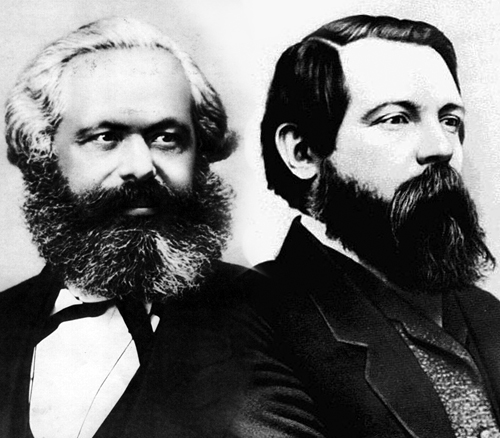I'm talking about conventional perspectives on the lumpenproletariat; early marxists clearly ran in different circles than I do.
A contemporary definition from the Communist Party of Texas:
Generally unemployable people who make no positive contribution to an economy. Sometimes described as the bottom layer of a capitalist society. May include criminal and mentally unstable people. Some activists consider them "most radical" because they are "most exploited," but they are un-organizable and more likely to act as paid agents than to have any progressive role in class struggle.
I can just feel the classism dripping out.
The wikipedia article about the phrase basically illustrates the idea of the lumpenproletariat as having been used as a punching bag by Marx, to create a foil to the proletariat in order to glorify the latter's revolutionary potential. From The Communist Manifesto:
The lumpenproletariat is passive decaying matter of the lowest layers of the old society, is here and there thrust into the [progressive] movement by a proletarian revolution; [however,] in accordance with its whole way of life, it is more likely to sell out to reactionary intrigues.
Anyway, I find this whole line of thinking precisely as deplorable as Marx, and Engels, and those who followed found the lumpenproletariat. Apparently Mao saw more revolutionary potential in the lumpenproletariat, believing they were at least educable.
It seems like the Black Panther Party looked toward the lumpenproletariat with some humanity, and they saw revolutionary potential in "the brother who's pimping, the brother who's hustling, the unemployed, the downtrodden, the brother who's robbing banks, who's not politically conscious," as Bobby Seale, in-part, defined the lumpenproletariat.
This feels much more honest and humane than the classical definitions, which I guess a lot of the major communist orgs in the u.s. still run with.
Finally, I'll just copy and paste the very short 'criticism' section from the wiki article as some food for thought:
Ernesto Laclau argued that Marx's dismissal of the lumpenproletariat showed the limitations of his theory of economic determinism and argued that the group and "its possible integration into the politics of populism as an 'absolute outside' that threatens the coherence of ideological identifications." Mark Cowling argues that the "concept is being used for its political impact rather than because it provides good explanations" and that its political impact is "pernicious" and an "obstacle to clear analysis." Laura Pulido argues that there is a diversity in the lumpen population, especially in terms of consciousness.
Anyway, just one of those 'holy shit' moments. Usually I vibe hard with classical marxism, but they can't all be hits. Wondering other peoples' takes.
But don't go telling me that my lumpen comrades are economically predestined to not be revolutionary socialists, because that analysis would run in direct contradiction to material realities ;)


Thanks! I just feel like we are being too un-nuanced. Sometimes too idealistic. Since, yes, the lumpen/worker can be revolutionary, but how many of them are? Are we confirming our own bias by our own experiences?
I agree with you, we can’t know if we’re confirming our biases as no one’s done the research on this.
I would charge, though, that if we don’t have the research now, Marx certainly didn’t, and was likely confirming his own biases, informed by his class position and the cultural narratives that were common to the ~1850s ;)
Ah, of course. I meant in the sense that many have argued here that they are lumpen or know revolutionary lumpen, yet that doesn't mean anything, because one could know lumpen and know that they were revolutionary. Or, actually, know workers and know that they weren't revolutionary. Honestly all of this boils down to: 'agitate, educate, organise'.
Ya, and you have a great point about 'people aren't defined by their class position, even if class position influences people'. Really important note that marxist class analysis isn't deterministic, but descriptive.